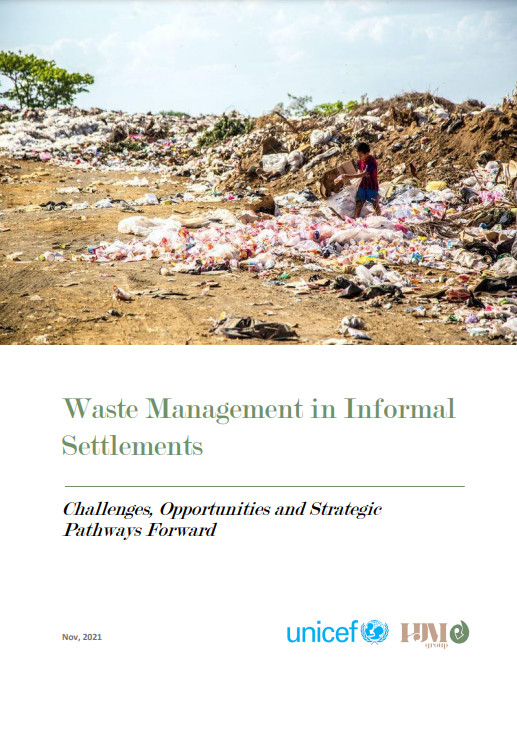Waste management in informal settlements
 |
Challenges, Opportunities and Strategic Pathways Forward
publication Nov 2021 ; 88 pages
Ed. UNICEF - Beirut
Téléchargeable sous format: PdF
Abstract:
This report presents first an initial review on Lebanon’s solid waste management and in particular informal settlements, since the fate of solid waste management in municipalities, municipal union and informal settlements are intertwined.
Next, the study provides a detailed analysis of the previous pilot projects implemented using qualitative and quantitative methodological tools as document studies, 5 focus groups from WASH workshop, key informant interviews with 17 interviewees (including wash coordinators, UNICEF partners, etc.) and a survey questionnaire circulated among UNICEF, WASH sector staff and partners.
a solid waste management strategy is developed to ensure compliance with the physical/technical and the governance key pillars identified for sustainable development. The governance pillars include: stakeholder’s inclusivity through a participatory decision-making process, self-sustainable financial model, and pro-active and mitigation measures.
he final development phase of the strategy includes designing a troubleshooting approach or decision-making process to offer different alternatives based on the most critical variables that differ between one IS and another.
Publics-Cibles:
Acteurs de coopération , Décideurs locaux ou nationaux , Santé (professionnels de la)
Mots clefs: |
accès à l'assainissement (CI) (DT) (OP) (ope) , déchets solides (CI) (DT) (OP) (ope) , hygiène (CI) (DT) (OP) (ope) |
Pays concerné: |
Editeur/Diffuseur: |
|
UNICEF
-
United Nations Children's Fund - Beirut - Liban |
En cas de lien brisé, nous le mentionner à communication@pseau.org